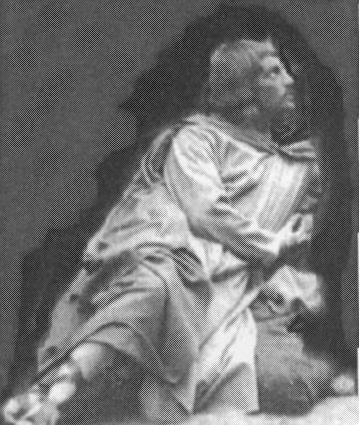Max Mikorey
Mikorey was born on September 15th, 1850 in Weihmichl near Landshut. When he was ten years old, he studied Latin in Landshut,
then went to Munich for advanced studies. In Munich, he met the tenor Martin Härtinger, who told him he should become a
singer and gave him free lessons. When he was 18 years old, he became a chorus tenor at the opera in Augsburg. In 1869, Mikorey
moved to the Gärtnerplatztheater in Munich as a second buffo tenor for operettas. In 1870, he was called by the army to fight
the war against France. Six months later, he returned to civil life. He appeared without being noticed as an actor and operetta
buffo tenor. On July 10th, 1875, Heinrich Vogl heard him in the Munich premiere of Die Fledermaus, recognized his vocal potential,
and became his most important teacher, in spite of being only five years older than Mikorey. In 1878, Vogl managed to get
him hired at the Hofoper where he became Bayerischer Kammersänger. He sang both lyrical and dramatic parts. He could
have competed with the first Munich tenors (Franz Nachbaur and Heinrich Vogl himself), but he was not inclined to do so.
He was the perfect substitute for them when they were indisposed, as Mikorey could step in in any role. He was also
willing to sing parts like Arturo (Lucia) and Gastone next to the two star tenors. Depending of what was necessary, he
sang Canio or Beppe, Florestan or Jaquino and also sang the Messenger in Aida next to the debuting Knote, in spite of
Radamès being his own part. Mikorey sang Arindal in Die Feen about 70 times between the posthumous premiere (29 June 1888)
and the turn of the century. After all the tenors in Munich had declared the part of Guntram unsingable, Mikorey sang it.
After the premiere on November 16th, 1895, Mikorey requested a higher pension to sing it again. The work was then retired.
Mikorey did not reach the level of his teacher. He was a slow learner, and a limited actor. There were divergent
opinions about him. Wilhelm Maucke said of his Stolzing in 1895 that he was good interpreter of the role, but in 1896 wrote that he had
problems. Mikorey had problems with Kunihild (composer: Cyrill Kistler) during the world premiere on April 18th, 1896.
The critics wrote that he had changed the words haphazardly, sometimes totally reversing their meaning.
In 1882, Vogel recommend him for a small part (Esquire) in Parsifal at Bayreuth. Mikorey repeated the part in 1883. He did
not sing anything else in Bayreuth. But in Munich, at the annual "Wagner Model Performances" that started in 1892, Mikorey sang
many outstanding performances as Stolzing, Lohengrin and Tannhäuser, often putting guests in the shadow. When
Vogl died in 1900, Mikorey went back to supporting parts. He sang for the last time in Munich as Melot on August 28th, 1905. He
died from a heart attack two years later in Dessau (1 December 1907).
Source: Einhard Luther, So viel der Helden. Biographie eines Stimmfaches, Teil 3: Wagnertenöre der Kaiserzeit (1871–1918), Berlin 2006
|
